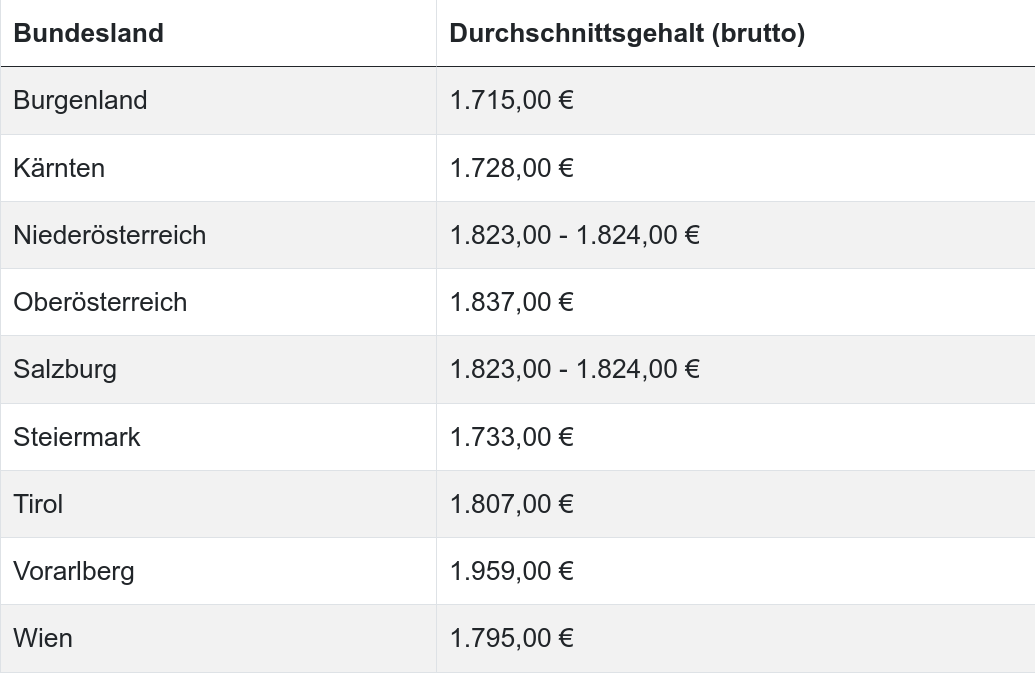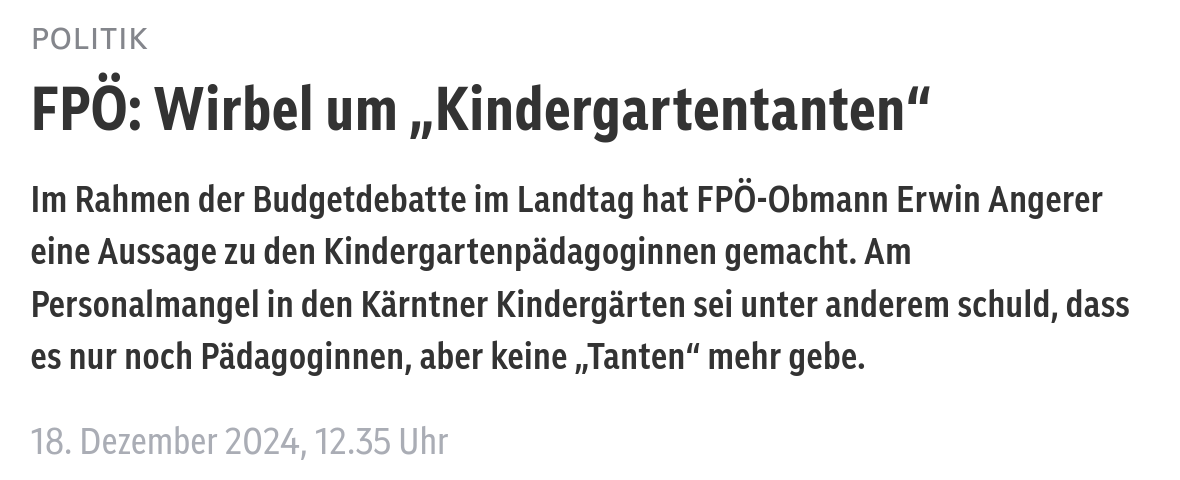Playing with Kids All Day (And Other Lies About Kindergarten Teachers)

Picture this: It’s 7 AM, you’re responsible for two dozen children who all woke up at different times, had vastly different breakfasts (or none at all) and come with their unique blend of moods, tantrums and joy. You need to manage bathroom breaks, emotional meltdowns, craft projects, educational activities and ensure every child feels heard and cared for… simultaneously. Sounds like fun, right?
Sure, until you remember you’re underpaid, understaffed and constantly judged by parents who see their child as the star of their own Netflix show. But hey, it’s just “playing”.
Underpaid and Overworked
Here’s the harsh truth: In Austria, kindergarten teachers often earn less per hour than cleaning staff. Yep, you read that correctly. According to a Momentum Institut study, the average wage for childcare workers is just €14.97 per hour (barely above the poverty threshold). That’s less than your local cleaning service likely earns. And trust me, their job doesn’t involve juggling emotional breakdowns, parental entitlement and complex childhood development.
This embarrassing salary situation hasn’t changed significantly over the years. Back in 2015, kindergarten teachers in Styria, Austria, already reported severe understaffing and low pay, conditions which discouraged many from staying in the profession.

Via Gehalt für Kindergärtner in Österreich - Finanz.at
And let’s not forget: salary is only half the story. Kindergarten teachers often have to put in hours of unpaid preparation and documentation, regularly sacrificing their free time just to stay afloat. A study by the Austrian Union (ÖGB) revealed that many educators frequently handle administrative tasks and planning during weekends or evenings because there’s simply no other way to keep up. Imagine being responsible for meticulously documenting every child’s developmental progress after already spending eight or more exhausting hours trying to maintain order among dozens of energetic toddlers.
Meanwhile, Austria struggles with significant personnel shortages. Cities like Vienna recently faced over 700 unfilled kindergarten positions, putting even more pressure on already exhausted teachers. Politicians keep promising improvements, but change remains frustratingly slow. Without meaningful action (better salaries, smaller groups and more support) the burnout cycle continues, pushing dedicated educators out of a profession they genuinely love, leaving children, parents and society worse off.
“It’s just kids. How hard can it be?”
If the pay wasn’t insulting enough, the actual working conditions reach another level of absurdity. Kindergarten teachers consistently report alarmingly high levels of stress, exhaustion and burnout. According to the Austrian Union ÖGB, more than half of kindergarten teachers regularly experience emotional exhaustion, anxiety and even physical illness from their workload. And no wonder: most of them find themselves forced to work even when genuinely sick due to chronic understaffing. Calling in sick often means leaving colleagues hopelessly overwhelmed, which adds guilt and emotional strain on top of physical exhaustion.
But let’s talk about the hidden emotional labor these educators perform. Many kids arrive carrying baggage from home: divorce, neglect, inconsistent parenting or simply emotional needs their parents aren’t equipped to handle. Kindergarten teachers are not just expected to handle these complex situations gracefully, they’re often the first to identify serious developmental or emotional issues and communicate these delicate matters to parents, sometimes facing defensive or dismissive responses.
And speaking of parents, they’re frequently part of the problem. Every kindergarten inevitably has at least a handful of parents convinced their child is royalty deserving special treatment, constant attention and infinite patience for disruptive behavior. No, Karen, your child repeatedly pushing others isn’t “expressing individuality,” it’s creating chaos. Dealing diplomatically with such parents becomes an additional, emotionally taxing job. One that teachers simply aren’t compensated or supported enough for.
Teachers shouldn’t need superhero-level resilience just to make it through each day. Yet in kindergartens, that’s the unspoken expectation.
Why does nobody take this seriously?
One reason is painfully obvious: gender. Childcare is overwhelmingly female, with women making up around 92% of the workforce). This isn’t some statistical fluke. Historically, fields dominated by women (especially care-based professions) are notoriously undervalued, underpaid and often outright ignored by policymakers. If 90% of kindergarten teachers were men, we’d probably be calling them “early childhood engineers” or some bullshit by now and paying them like junior consultants at McKinsey. Kindergarten teaching in Austria fits neatly into this frustrating pattern. Despite extensive education requirements and responsibilities that shape children’s emotional and cognitive development, Austrian politicians and society at large still struggle to see kindergarten teaching as a legitimate educational field rather than glorified babysitting. Kindergarten teachers and especially children just don’t have a lobby.
And let’s be clear: these educators aren’t just “watching the kids play.” They are professional caregivers, trained educators, psychologists who identify and support emotional struggles, skilled mediators handling daily conflicts, nurses attending to constant scrapes and bruises and crisis managers prepared to respond to real emergencies. Yet, despite the broad skill set and enormous emotional resilience required, their expertise continues to be underestimated, underfunded and underappreciated simply because society still struggles to value work traditionally labeled as “female.”
When the care and education of our youngest generation is consistently viewed as secondary work, we send a troubling message: the future of our children (and those who raise and nurture them) is not a priority.
“But at least they get to play!”
(Assuming they have time for it once in a while)
Play isn’t trivial. It’s the fundamental building block for social, emotional and cognitive growth. What looks like “just playing” is actually the critical groundwork for skills like empathy, cooperation, problem-solving, language and even basic math concepts. Managing and guiding this developmental process effectively demands specialized training, deep psychological insights, immense patience and continuous attention… none of which come effortlessly or free.
In Austria, kindergarten teachers complete an extensive education through specialized institutions known as Bildungsanstalten für Elementarpädagogik (BAfEP). Five years of training, ending in a full Matura. A level of education that would qualify them for university, but still doesn’t qualify them for a decent paycheck i guess. This program combines demanding theoretical coursework with intensive practical experience. Teachers are prepared not only to teach basic skills but also to manage intricate emotional and social dynamics. Whether it’s helping a child navigate the emotional fallout of parental divorce, recognizing signs of neglect or abuse, dealing with behavioral issues or identifying developmental delays: these scenarios regularly appear in classrooms and require careful handling by trained professionals. This isn’t just “fun,” it’s demanding emotional labor that shapes young children’s lives in profound, lasting ways.
To trivialize kindergarten teaching as mere “playing” not only undermines the profession, but overlooks the serious, skilled and deeply meaningful work happening every single day in these classrooms.
Things change…
I still remember my own kindergarten days: back then, mornings were the norm and afternoon care was a rare luxury. At my kindergarten there was exactly one afternoon group. Fast forward to today and children are entitled to up to 50 hours of care per week. Yet the system can’t keep up and many parents still scramble for proper afternoon spots.
Here’s the kicker: in the last twenty years, salaries for kindergarten teachers have barely moved, while their workload has exploded. What used to be mostly mornings has turned into full-day care. If this happened in any other industry, people would be on the streets within days. Imagine factory workers being told: “Congrats, you’ll now work double shifts every week, forever. Oh and your pay stays the same.” You’d have the “Metaller” out faster than you can say strike.
During my time as a civilian service worker (Zivildiener) in a kindergarten, I saw firsthand how intense the job really is. Some children spent so many hours there that I realized I was seeing them more often than one of their parents did. Just let that sink in: a kindergarten teacher can become the adult a child spends the most waking hours with. And it’s not only in special family situations: many parents simply have to rely on nearly 50 hours of care each week. In those cases, the kindergarten isn’t just a family supplement, it becomes a family substitute. That requires time, sensitivity and a huge amount of professional skill from educators. Far beyond the idea of “just playing.”
We need to take them more serious

Disrespectful non-solutions won’t change a thing, source
Recently, some regions in Austria like Styria and Upper Austria have finally started taking small, cautious steps forward by slightly increasing salaries and reducing the number of children per group. These incremental improvements are positive signs… but let’s be real, they’re hardly enough to fix a system that’s been severely neglected for decades. Small adjustments won’t repair the fundamental flaws that exist in how society views and values kindergarten teachers. True change demands a profound shift in how we perceive early childhood education altogether.
Politicians love praising kindergarten teachers as unsung heroes, especially when election season rolls around. Yet mere applause, no matter how enthusiastic, won’t pay the bills or reduce burnout. If politicians genuinely care about the well-being of children and the educators who support their development, it’s time they back up their words with tangible investments: significantly increased wages, comprehensive support structures, realistic staff-to-child ratios and sufficient paid preparation and recovery time.
Kindergarten teachers aren’t babysitters. They’re educators, therapists, nurses, negotiators and role models. Each day, they quietly handle chaos, solve complex emotional puzzles, mediate countless conflicts and shape the next generation. All with dedication, compassion and skill that remains largely unrecognized and unpaid. They deserve more than poverty-level wages, chronic understaffing and condescending societal ignorance.
If we continue down this path of indifference and neglect, we shouldn’t be surprised when no one is left to care for our children. Maybe only then, faced with an unprecedented childcare crisis, society will finally stop calling it “just playing” and recognize it for what it truly is: essential, skilled and foundational education shaping our collective future. (Until then, keep telling yourself Paw Patrol is raising your kid.)